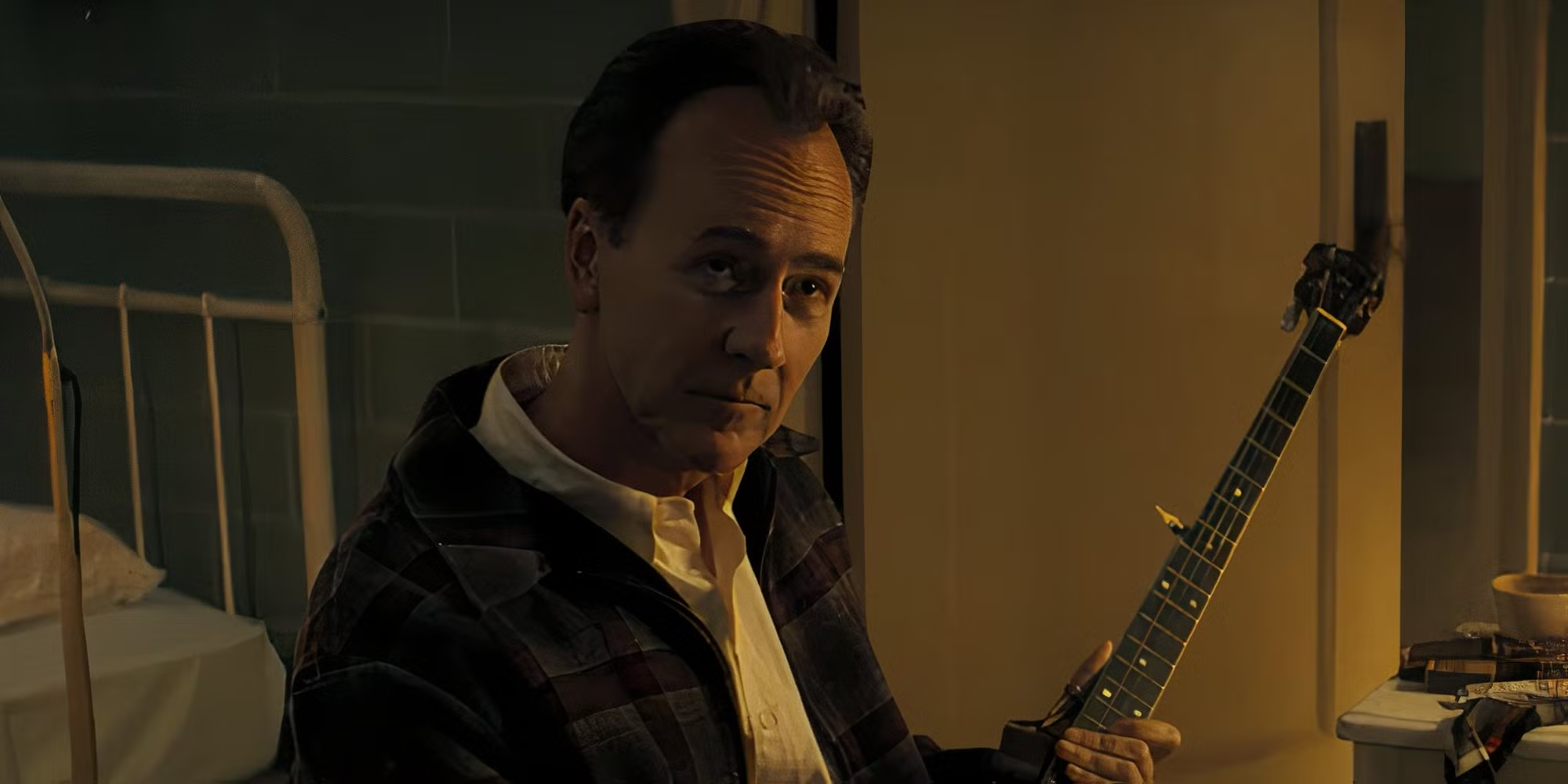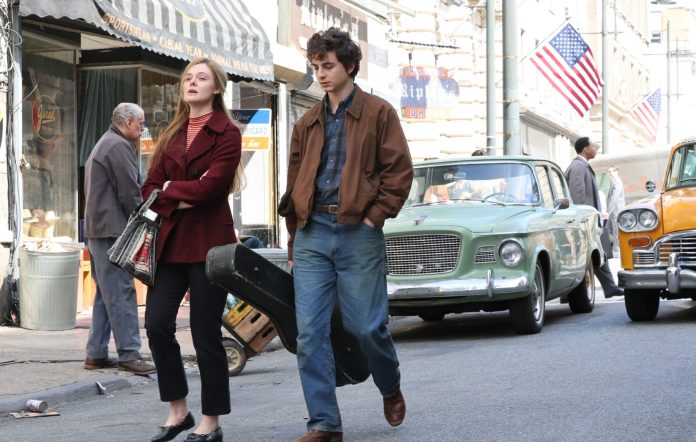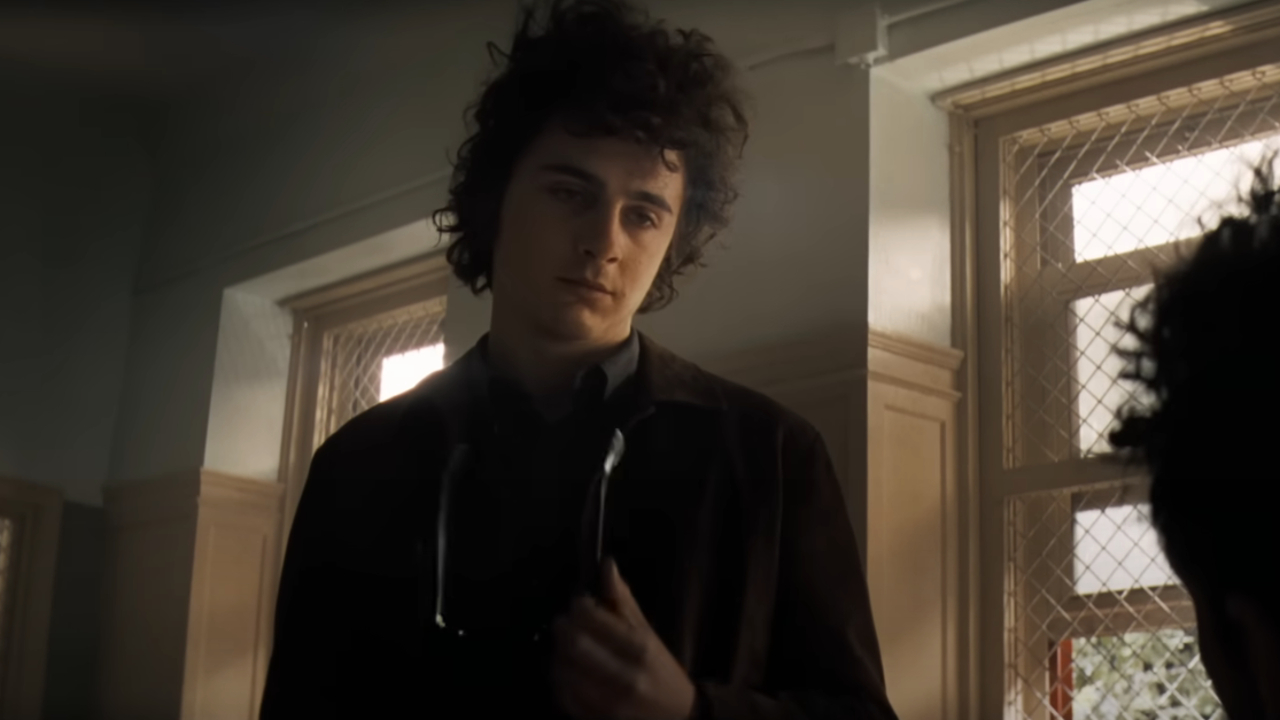Want to hear more from the actors and creators of your favorite shows and films? Subscribe to The Cinema Spot on YouTube for all of our upcoming interviews!
Lead Critic for the site, as well as serving as an editor when needed.
Today’s cinema has begun to be defined by the next generation of leading stars. Timothée Chalamet is arguably at the forefront of this new wave, with two incredible performances this year alone, in Dune: Part Two and more recently, in A Complete Unknown.
James Mangold co-writes with Jay Cocks and directs this Bob Dylan biopic. Although, it would be more consistent to say that this is a look at the early years of Bob Dylan, rather than a straightforward tale of his life. A Complete Unknown focuses on Dylan’s arrival in New York City in 1961, with the film ending a few weeks after his 1965 Newport Folk Festival performance. It was at this performance that Dylan debuted his electric sound live for the first time. This moment changed music history entirely. Arguably, its symbolism rang in the huge change that would continue throughout the rest of the sixties.

Who Do You Want To Be?
Many of us have an idea of who we are inside ourselves, along with where we can see what we will become, or want to become anyway. A Complete Unknown seeks to ask those questions, and at least for Dylan, perhaps answer what it really means and how it feels. In the beginning, Dylan seeks out Woody Guthrie (Scoot McNairy), arguably the godfather of folk music. McNairy, through no lines in the entire film, seemingly portrays the truest of beliefs in Dylan. Guthrie battled Huntington’s Disease by 1961, thus losing his ability to speak. This meeting also introduces him to Pete Seeger (Edward Norton), another huge figure in folk music. Dylan plays a song for the two and seemingly begins his journey to greatness.
Bob Dylan’s Relationships with Others
Many of Dylan’s relationships throughout the first half of the ’60s seemingly feel transactional in some way, for both him and the other person. This doesn’t seem intentional on the surface. It’s more as if the film seeks to ask the audience, “Do we all do this regularly?”. These relationships are subtle in the beginning and blossom out into an existential problem. This weighs heavily on Dylan’s relationship with Joan Baez (Monica Barbaro), a fellow folk musician that grew in popularity almost as a juxtaposition to his career. However, Sylvie Russo (Elle Fanning)—renamed for the film—is the one relationship we see Dylan seek to preserve in many ways.
By the film’s conclusion, it feels as if his relationship with Russo seemingly defined Dylan’s music in some ways. At the beginning of his career, Dylan leaned heavily into the folk moniker he seemingly was stamped with. Seeger sees him as the first of many artists that can bring folk music worldwide. However, by 1965, Dylan had grown tired of this same song and dance, feeling he didn’t belong in necessarily one single genre. In the film’s final moments, Dylan and Guthrie have what feels like a peaceful goodbye, with Guthrie reassuring Dylan to continue down his current track.

Dylan sought to go against the status quo of what the record label wanted out of him. His powerful songwriting abilities were finally displayed by late 1964, debuting “The Times They Are A-Changing” at the 1964 Newport Folk Festival. By the next year, he wanted something more, to be something else. Sure, Dylan was still fine with creating revolutionary ballads like that one. Although, it’s as if he always knew he wouldn’t remain the quiet fighter forever.
Electric or Acoustic?
It’s a simple question, but rather existential in nature for what would become the event of Dylan Going Electric. Should he stay within the lane he feels simple, yet somehow effective in? Or is it time to do something more, something bigger, something that is almost wrong to do?
We all have this moment. Do we remain in the box, or do something we feel could be better? Now, Mangold’s film itself is not naturally existential. It’s a rather simplistic look at a complicated young man. Being in my mid-twenties now, the film feels similar to many young people finding their way. Dylan walked into that complete unknown, and sought to do something radical for himself, but because he had something to say and something to believe in. More than anything, the film seeks to entertain and ask questions that we can carry throughout life. Eventually, we all must ask ourselves, electric or acoustic?

Technical Details
A Complete Unknown is perhaps one of the year’s best-paced films. With a runtime of 141 minutes, the film begins almost as quickly as it ends. For the true Bob Dylan fans, most of the film does somehow build toward his defining performance in 1965. The film slows down at many points, mostly to paint a picture of some of the complications that can arise being with someone like Dylan, or how two powerful voices are supposed to perform together but can never quite be with each other, Dylan and Baez. Mangold and Cocks’ screenplay adapts the book Dylan Goes Electric! by Elijah Wald. The script is paced very evenly, and the dialogue feels like something one would hear any of the artists actually discuss.
Mangold’s direction is some of his best on display, with cinematographer Phedon Papamichael’s framing of Dylan ever evolving and changing. This is perhaps a slight juxtaposition with how Dylan would begin to evolve by 1965. Arianne Phillips’s costume design and production designer François Audouy’s sets are key elements of the film’s success, too. A Complete Unknown is rooted in history and these two do an excellent job at recreating the era for the screen, and they truly inspire the film. As the film progresses, the change in these elements is felt and helps to create the true vision of the film.
Performances
Additionally, Johnny Cash (Boyd Holbrook) also greatly motivates Dylan during this time. Holbrook absolutely sinks into the role of the Man in Black effortlessly. Each actor performs every song we see on screen, and the cast is easily one of the best to watch this year. Of course, Timothée Chalamet is the obvious star of the film. Down to the most minute of body language, such as how Dylan held cigarettes, is enacted to the letter. Dylan oddly kept his fingernails a little longer than one would expect—a guitar player thing maybe—and even Chalamet’s fingernails are similar in that right. The attention to detail with each actor and their character is excellent.
Final Thoughts on A Complete Unknown
James Mangold’s A Complete Unknown is perhaps the best biopic that has been released in recent years. Timothée Chalamet is deeply Bob Dylan, and Mangold and Chalamet have crafted an amazing look at someone who was seemingly misunderstood in some ways but sought to be great on his own, not in the way they wanted. He wanted to be “whatever it is they don’t want me to be,” and create a sound only he knew to be truly Bob Dylan. Yet, that sound would eventually, inevitably, change things.
The film asks the audience how it feels to create something entirely your own. With a title taken from the lyrics of “Like a Rolling Stone,” eventually we all cross into that complete unknown in ways we may not truly anticipate. Ultimately, though, one of the year’s best films feels crafted with the highest care of its genre and is truly nothing but cinema entertainment at its finest.
5/5 stars.
James Mangold’s A Complete Unknown is now playing in theatres everywhere!
For more biopic and drama-related news and reviews, follow The Cinema Spot on Facebook, Twitter, Instagram, and Bluesky! Also, follow us on Letterboxd for further feature film, short film, and limited series reviews!
Lead Critic for the site, as well as serving as an editor when needed.
This article was edited by John Tangalin.
